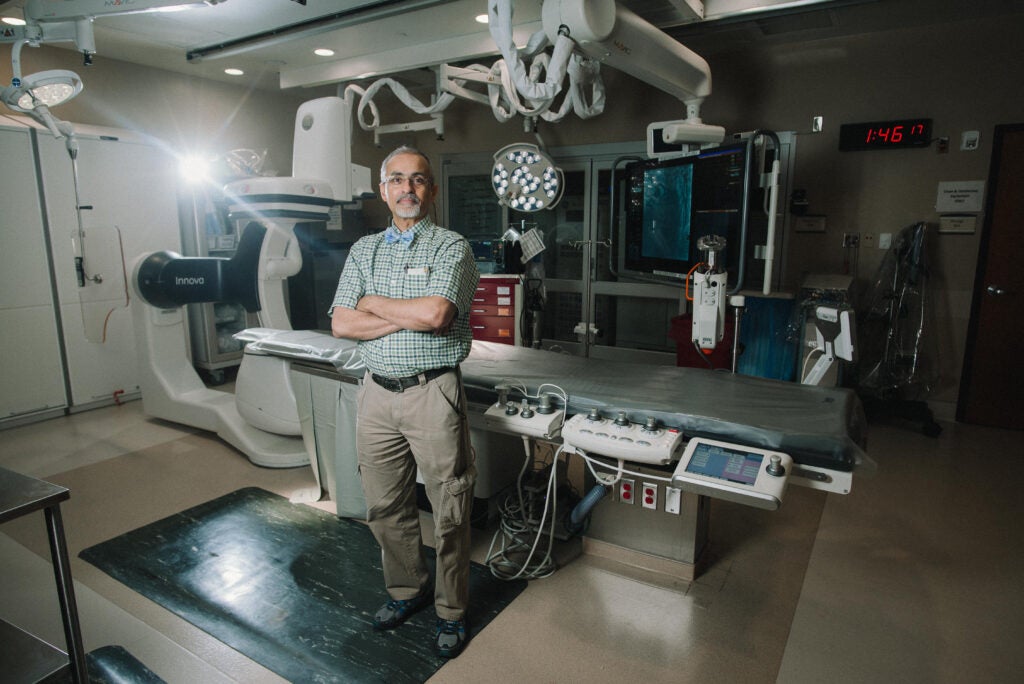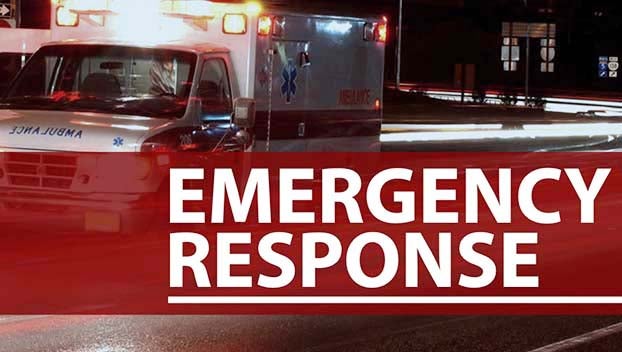Cath Lab helps highlight Clark Regional Medical Center
Published 5:30 pm Tuesday, March 26, 2024
|
Getting your Trinity Audio player ready...
|
At Clark Regional Medical Center, care for patients always comes first and foremost.
A cath lab, short for cardiac catheterization lab, is one such way.
Opened amid the COVID pandemic in 2020, the lab has gone the past 3.5 years quietly yet expertly serving its clients.
“Last year, [I think] we did over 700 procedures,” said Savannah Sullivan, Director of Marketing and Communications for Lifepoint Health Central Kentucky.
Kelly Stratton, a registered nurse herself, is the Senior Director in charge of managing the catheterization lab.
She briefly explained its primary purposes.
“The cath lab is where we do a procedure to see if you have any blockages in the heart arteries, and if you do, we can put stents in there to open the blockages back up,” she said. “[For] people who are having heart attacks, we bring them in and get those vessels opened up very quickly so that they have the least amount of heart damage.”
While some patients are in critical condition upon arrival, others are treated on a preventative basis.
The lab has come a significant way since its early development.
“It’s been something we’ve wanted to do for many years, but we had to work with some of our partners,” Stratton said. “It took us a little over a year to plan. We added to the hospital, designed it with the architects, and did those types of things.”
The lab’s location at Clark Regional Medical Center, 175 Hospital Drive, provides patients with yet another advantage.
“The other thing unique about the cath lab is the proximity to both Winchester and the [Bert T. Combs] Mountain Parkway,” Sullivan said. “When it comes to heart attacks, the longer it takes to get that intervention, the more likely you’ll have a bad outcome. That [location] is a huge benefit.”
According to Stratton, many patients down Mountain Parkway had to attend other facilities.
“The goal is to have that vessel opened 90 minutes from the time you come into the hospital. The national average is 65, and we spend about 33 to 34 minutes getting that vessel open,” Stratton said. “[Our team] is about making it happen quickly and ensuring the patient has a good experience.”
From her background in nursing, Stratton has a unique outlook.
“It takes three different [licenses] to make a cath lab run. We have to have our physicians. We also have to have our [registered nurses], and then we have to have radiologic technologists,” she said. “I’ve worked in cath labs for many, many years now, and having someone with a clinical background in charge of a cath lab is very important because you help drive the quality of care… I can advocate for my patients and my staff because I understand what they’re saying.”
Presently, the two physicians practicing in the catheterization lab are Dr. Ananth Kumar and Dr. Charles Salters.
Future plans are always in store.
“Right now, we are [open] five days a week [with] kind of a normal schedule, and then we are on call [on] Tuesday, Wednesday, [and] Thursday,” Sullivan said, adding that transitioning toward being on call 24/7 is a prime priority going forward. “We are recruiting for another interventional cardiologist to help cover those other days because it is important to have that.”
Sullivan added that partnerships with the cath lab at CRMC are strong.
“We are a member of the UK Gill Heart & Vascular affiliate network, which gives us access to UK cardiologists who are not available everywhere,” she said. We’re able to have a direct line of communication with them. We have great relationships with them. When we have patients who need either a higher level of care or care that we’re not currently providing due to the day of the week, we can make those connections very quickly.”
Speaking of patients, Stratton acknowledged their role in the team’s continued motivation.
“[They] are why I do what I do,” she said. “It’s not only what I love to do. It’s what our physicians love to do. Our whole staff [and] more love to do it.”






